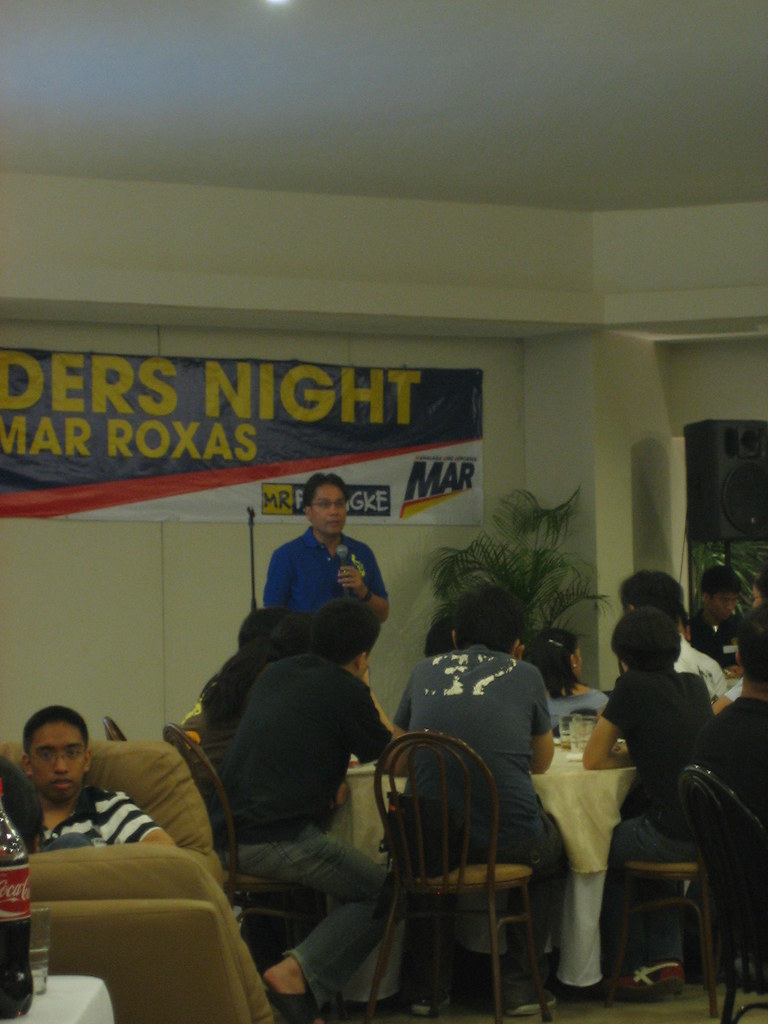
Last night, youth leaders from different schools and localities gathered to listen to what Mar Roxas had to say, and get to question him on different issues and concerns of the youth of today. The crowd was made up of mostly UP Students, some of them were from Ateneo, DLSU, UST, and others.

This is my opinion (as objective and positive as possible). Yes, on the outside, Mar Roxas is a presence on stage, he can articulate and give his two cents and explain himself in a manner that you would listen and tend to genuinely believe him. He was fair enough in his speech. He is very knowledgeable about the present situation, political and social aspects of our society, and the context where we are in right now. But sadly, I found the "meet and greet" quite lacking and a bit of a disappointment. For starters, he didn't really elaborate and concretize on "The Role of the Youth in National Development" - the point of us being there.
I think that he should have used that opportunity to "address" the youth of today, and how they would "fall in the scheme of things" and how they could "act" collectively and individually, and tackle the pressing issues and problems of and about the youth, and the tangible and concrete solutions and projects he might think of with and for the youth (case in point, for the college students in attendance) and our country. I would love to hear and engage him for the second time, and hopefully in another forum or other fora.

As an aside, (this is where it manifests that I am a foodie) we were treated to a scrumptious dinner of pasta, BBQ, lumpia and rice. Drink all you can, then the beer (which we didn't drink). We had Dilly Bars right after (for the win)!

Right now, I can't say that I am endorsing Mar Roxas. I want to see all of them first, if possible talk to them, scrutinize their vision, platform and plans, then comes my decision. For now, it's premature for me to do so, given that he's the first one, among those who have "signified intention" for presidency, I met.
There will be more meetings with Mar, so I hope he'll redeem himself. Don't get me wrong, so far, I can see him as one of the best (slash) most probably candidate that would be rallied upon by people, but he has to really step up and shape up to get our vote. One thing's for sure, you must be critical, hear all sides, and you must have standards in "searching for our voice in 2010" :)
src="http://pagead2.googlesyndication.com/pagead/show_ads.js">
Technorati Tags: bong, superbong, brian ong, The Philippines and Beyond, Philippines, Mar Roxas, 2010 Elections, Philippine Elections, Role of the Youth in National Development, UP Students, Cubao Expo Centro, political forum, Philippine Politics, Youth Leaders, Senator Mar Roxas

